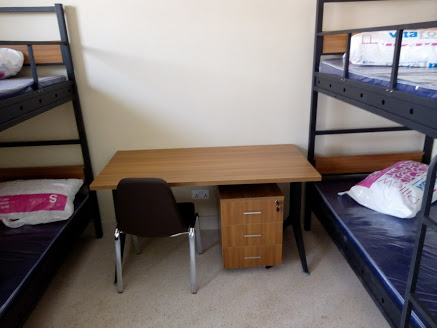- While campus hostels offer convenience, a built-in community, and proximity to classes, off-campus living can provide independence, privacy, and potentially a more personalized living environment. Understanding the unique needs and preferences of students is essential for parents to make informed recommendations. In this discussion, we’ll explore the advantages of both options, helping parents navigate the best living arrangements for their college-bound children.
Choosing the right living arrangement is a pivotal decision for college students, profoundly influencing their academic experience and social life. For parents, guiding this choice means carefully weighing the benefits and drawbacks of campus hostels versus off-campus housing.
Campus hostels offer numerous advantages, such as convenience, a built-in community, and closeness to classes. In contrast, off-campus living provides independence, privacy, and a potentially more personalized environment. Understanding the unique needs and preferences of students is essential for parents to make informed recommendations.
Living in campus hostels places students at the center of university life. With classes, libraries, and recreational facilities just a short walk away, students save time and energy on commuting. This accessibility encourages greater participation in campus activities and events, fostering a stronger sense of belonging.
Hostels are typically designed to promote interaction among students, facilitating friendships and networking. This environment can ease the transition for newcomers, helping them adjust to college life. Many hostels offer essential services such as meals, cleaning, and security, reducing the responsibilities that come with independent living. Additionally, utilities like internet and water are often included in the rent, simplifying financial management for students.
However, sharing a room with one or more roommates can be a drawback for those who value solitude or need a quiet space to study. Communal living arrangements may not suit everyone, and hostel policies regarding guests, noise levels, and common areas can feel restrictive for students accustomed to more independence. While hostels can be cost-effective, some might find overall expenses, particularly in premium housing options, higher than anticipated, especially if meals are not included.
Read More
On the other hand, off-campus living grants students a degree of autonomy. They can choose their roommates, set their own schedules, and create a living environment that reflects their personal preferences. The diversity of off-campus housing options, from apartments to shared houses, allows students to select spaces that fit their budget and lifestyle—whether they prefer a bustling neighborhood or a quieter area. In some cases, off-campus housing can be more affordable than on-campus options, especially when sharing accommodations with roommates. Students also gain more control over expenses like groceries and utilities.
However, living off-campus can introduce logistical challenges, such as longer commutes to class. This additional travel time may limit students' flexibility for participating in campus activities or studying in libraries. Those living off-campus might find it harder to connect with peers and engage in campus life, requiring extra effort to forge friendships and participate in university events.
The choice between campus hostels and off-campus living hinges on individual preferences, needs, and circumstances. Parents should engage in open discussions with their college-bound children, considering factors such as lifestyle, study habits, and social needs.
By weighing the pros and cons of each option, families can make informed decisions that support students’ academic success and personal growth during their college years. Whether they opt for the community-oriented atmosphere of hostels or the independence of off-campus living, the key is to find a place where students can thrive both academically and socially.












